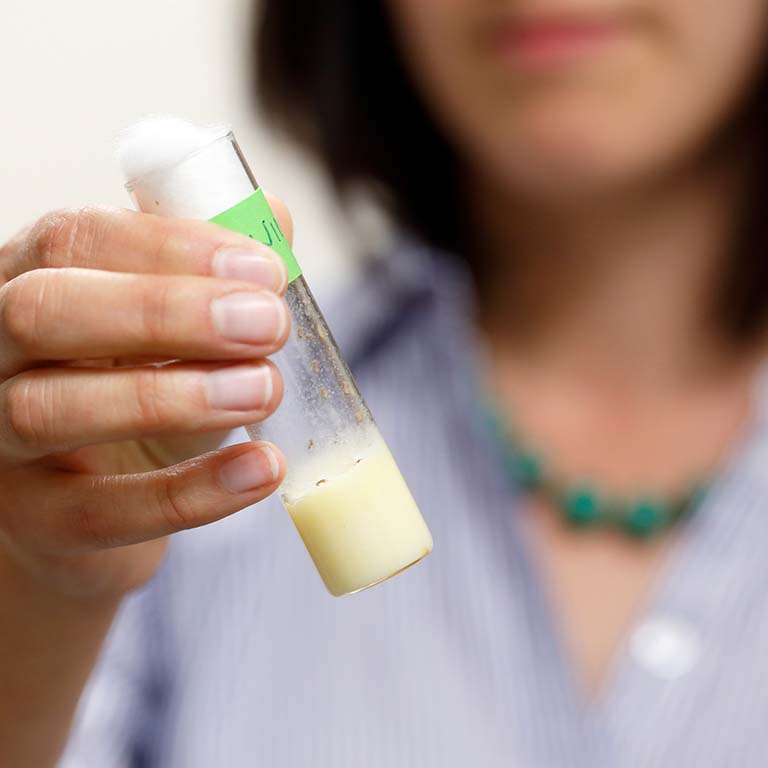Irene Newton will investigate how Wolbachia colonizes insects to prevent the spread of diseases such as West Nile virus and Zika.
Indiana University biologist Irene Newton has been awarded $1.8 million from the National Institutes of Health to investigate the biological mechanisms that enable a specific type of bacteria to infect and then inhibit insects from transmitting diseases such as West Nile virus, dengue fever, chikungunya, yellow fever, and Zika.
Called Wolbachia, the bacterium acts as a "pathogen blocker" in mosquitoes, which means insects infected with it are unable to pass along certain viruses to new hosts, including people.
"Amazingly, Wolbachia-infected mosquitos have been quite effective at reducing transmission of RNA viruses, including human pathogens," said Newton, an associate professor in the IU Bloomington College of Arts and Sciences' Department of Biology. "The phenomenon was first discovered in fruit flies and later moved into mosquitos by scientists through a difficult process in order to stop virus transmission to humans."
"What we still don't know is how Wolbachia actually does any of these things, and that's what my lab is poised to find out."
Under the grant, Newton's research will identify the biological building blocks involved in pathogen blocking. It's important to understand these mechanisms because Wolbachia-infected mosquitoes are already used in some parts of the world, including the Asia Pacific islands, northern Australia, South America and Mexico. More information about how the bacteria colonizes new hosts, and the processes that stop it from spreading disease, could increase its effectiveness—as well as prevent unintended consequences from releasing modified organisms into the wild.
The class of viruses that Wolbachia stops from spreading are arboviruses, or viruses spread by arthropods, which include mosquitoes and ticks. Other lesser-known arboviruses include Japanese encephalitis virus, Rift Valley fever virus, and tick-borne encephalitis virus.
Last year, Newton and colleagues at IU discovered that a gene called Mt2, which encodes a type of enzyme known as a methyltransferase, plays a role in pathogen blocking. This work—as well as new research under the grant—uses fruit flies, or Drosophila, as a model species for mosquitoes, and leverages IU's world-class facilities in fruit fly genetics, including the Bloomington Drosophila Stock Center, the Drosophila Genomics Resource Center, and FlyBase.


 The College of Arts
The College of Arts